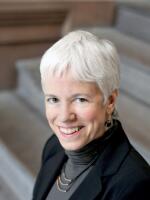New York Governor Kathy Hochul on Tuesday released a $216 billion state budget that includes what the Democrat says are “pandemic recovery” programs with $10 billion for healthcare over the next several years, more money for schools and childcare, as well as infrastructure projects and a larger environmental bond act proposal.
Hochul says she’s able to propose the ambitious spending programs because the state is awash in cash, due to better than anticipated tax receipts, a “thriving” stock market, which is heavily taxed by New York, and an historic influx of federal aid.
“We predict we’ll be able to balance the budget and be able to make these types of bold, but necessary investments all the way through fiscal year 2027,” Hochul said in a virtual address. “And this is a big chance from where we were just this time last year when the Division of Budget projected deficits totaling $17 billion during that same time frame. So, this is a once in a generation opportunity to make thoughtful, purpose-driven investments in our state and in our people that’ll pay dividends for decades.”
Hochul wants to spend $10 billion more over the next five years on healthcare, with a goal of increasing the health care workforce by 20%, and helping to supplement salaries.
She would like to raise school aid by more than 5%, with a record $2.1 billion increase to a total of $31.2 billion. Her budget for the first time fully complies with a court order that said New York needs to spend billions more dollars on its poorest schools in order to provide an equitable education.
The governor increases her initial plan, announced in the State of the State January 5, to help families pay for child care, from 100,000 households to benefit 400,000 families.
Hochul is also taking advantage of generous federal subsidies, to spend $32.8 billion on infrastructure projects, ranging from big renovations of airports and train stations, to fix smaller, but aggravating, road problems.
“I’ve also declared war on potholes,” said Hochul, adding that her goal is to spend $1 billion to go from pot holes to “not-holes.”
The governor’s plan would cut taxes, including $2.2 billion in property tax relief, accelerating a planned middle class tax cut, and providing $250 million to small business hard hit by the COVID-19 pandemic.
She does not propose any new tax or fee increases, but the budget does rely on more revenue from the gaming industry. Her plan calls for speeding up the timetable by one year to accept applications for three new gambling casinos, potentially opening up the lucrative market for gaming halls in New York City region. Budget director Robert Mujica says the newly authorized mobile sports betting pulled in $150 million and over 650,000 new subscribers in its first weekend alone and he projects $357 million in revenues from it the new fiscal year.
“We expect that our revenues will meet our targets,” said Mujica. “If not exceed them.”
Mujica, who says half of the revenues collected from mobile sports betting goes to education aid, says the state is now “number one in the nation” in volume of sports bets placed.
Hochul promised to be prudent with all of the spending she’s proposed. She says there are no built-in recurring programs that can’t be financed in future years. She says she’d like to put more money into the state’s rainy day reserve fund, to total 15% of the state’s budget by 2025.
“For the first time ever, with smart planning, New York will have no out year gaps,” Hochul said. “All these commitments are either one-time expenditures or are supported by the expectation of a reasonable growth in revenue as projected by our division of budget.”
Patrick Orecki, with the watchdog group Citizens Budget Commission, says while a 15% reserve fund is better than New York’s historically low rate of 5%, the state should be putting even more aside. He says New York’s finances are heavily dependent on taxes imposed on the stock market and on high income earners, which are both less predictable sources of revenue.
“A good national benchmark is 17% of operations,” Orecki said. “Given New York’s tax structure we think revenues are more volatile and therefore the state should actually be saving more than 17%.”
Hochul is also upping the amount of money in an environmental bond act that would go before voters in November, from $3 billion to $4 billion.
She would like to extend the state’s Tuition Assistance Program to part time college students and to inmates in state prisons.
Hochul also adds some items that are not related to state spending. It’s a practice often employed by governors because, under New York’s laws, they have more power in spending plan negotiations to successfully win agreement on legislation than during the regular legislative session. Hochul includes a proposal to revamp the state’s troubled Joint Commission on Public Ethics, or JCOPE. It would be replaced by a rotating panel of five commissioners nominated by 15 leading law school deans. She also includes a proposal for a constitutional amendment to limit statewide office holders to two four-year terms, and bills to lower the voter registration deadline to 10 days before election day and locate polling places on college campuses.
One item that’s not in the state budget: any funding for a new stadium for Hochul’s beloved Buffalo Bills football team. Budget Director Mujica says that’s because the talks are still in progress.
The new fiscal year begins April 1.



